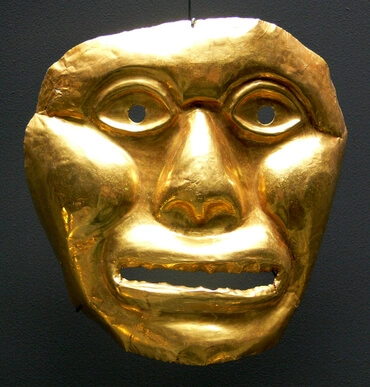1
Og Herren talte til Moses og sa:
2
I den første måned, på den første dag i måneden, skal du reise tabernaklet, sammenkomstens telt.
3
Der skal du sette vidnesbyrdets ark og dekke for arken med forhenget.
4
Så skal du sette inn bordet, og på det skal du legge alt som skal ligge på det; og du skal bære inn lysestaken og sette op lampene på den.
5
Og du skal sette det gullklædde røkoffer-alter foran vidnesbyrdets ark og henge op teppet for inngangen til tabernaklet.
6
Brennoffer-alteret skal du sette foran inngangen til tabernaklet, sammenkomstens telt.
7
Og tvettekaret skal du sette mellem sammenkomstens telt og alteret og ha vann i det.
8
Og så skal du sette op forgården rundt omkring og henge op teppet for porten til forgården.
9
Derefter skal du ta salvingsoljen og salve tabernaklet og alt som er i det, og du skal hellige tabernaklet og alt som hører det til, så det blir hellig.
10
Og du skal salve brennofferalteret og alt som hører det til, og du skal hellige alteret, og alteret skal være høihellig.
11
Og du skal salve tvettekaret og dets fotstykke og hellige det.
12
Så skal du føre Aron og hans sønner frem til inngangen til sammenkomstens telt Og tvette dem med vann.
13
Og du skal klæ Aron i de hellige klær og salve ham og hellige ham, og så skal han tjene mig som prest.
14
Og hans sønner skal du også føre frem og klæ dem i underkjortlene.
15
Og du skal salve dem, likesom du salvet deres far, og så skal de tjene mig som prester; og denne salving skal gi dem retten til prestedømmet for evig tid, slekt efter slekt.
16
Og Moses gjorde så; han gjorde i ett og alt således som Herren befalte ham.
17
I den første måned i det annet år, på den første dag i måneden, var det tabernaklet blev reist.
18
Da reiste Moses tabernaklet: Han satte ned fotstykkene og stilte op plankene, la tverrstengene inn og reiste stolpene.
19
Så bredte han ut dekket over tabernaklet og la varetaket ovenpå, således som Herren hadde befalt Moses.
20
Derefter tok han og la vidnesbyrdet i arken og satte stengene i og satte nådestolen ovenpå arken.
21
Og arken satte han inn i tabernaklet og hengte op det dekkende forheng foran vidnesbyrdets ark, således som Herren hadde befalt Moses.
22
Så satte han bordet i sammenkomstens telt ved den nordre vegg av tabernaklet utenfor forhenget
23
og la brødene i rad på det for Herrens åsyn, således som Herren hadde befalt Moses
24
Lysestaken satte han i sammenkomstens telt midt imot bordet ved den søndre vegg av tabernaklet
25
og satte op lampene for Herrens åsyn, således som Herren hadde befalt Moses
26
Så satte han det gullklædde alter i sammenkomstens telt foran forhenget
27
og brente velluktende røkelse på det, således som Herren hadde befalt Moses
28
Derefter hengte han op teppet for inngangen til tabernaklet.
29
Brennoffer-alteret satte han ved inngangen til tabernaklet, sammenkomstens telt, og ofret brennoffer og matoffer på det, således som Herren hadde befalt Moses
30
Tvettekaret satte han mellem sammenkomstens telt og alteret og hadde vann i det til å tvette sig med.
31
Og Moses og Aron og hans sønner tvettet sine hender og sine føtter i det.
32
Når de gikk inn i sammenkomstens telt, og når de trådte nær til alteret, tvettet de sig, således som Herren hadde befalt Moses.
33
Så reiste han op forgården omkring tabernaklet og alteret og hengte op teppet for porten til forgården. Således fullendte Moses verket.
34
Da dekket skyen sammenkomstens telt, og Herrens herlighet fylte tabernaklet.
35
Og Moses kunde ikke gå inn i sammenkomstens telt fordi skyen hvilte over det, og Herrens herlighet fylte tabernaklet.
36
Og når skyen løftet sig fra tabernaklet, brøt Israels barn op; så gjorde de på alle sine tog.
37
Men når skyen ikke løftet sig, brøt de ikke op, men ventet til den dag den atter løftet sig.
38
For Herrens sky lå over tabernaklet om dagen, og om natten lyste den som ild, for alle Israels barns øine på alle deres tog.







